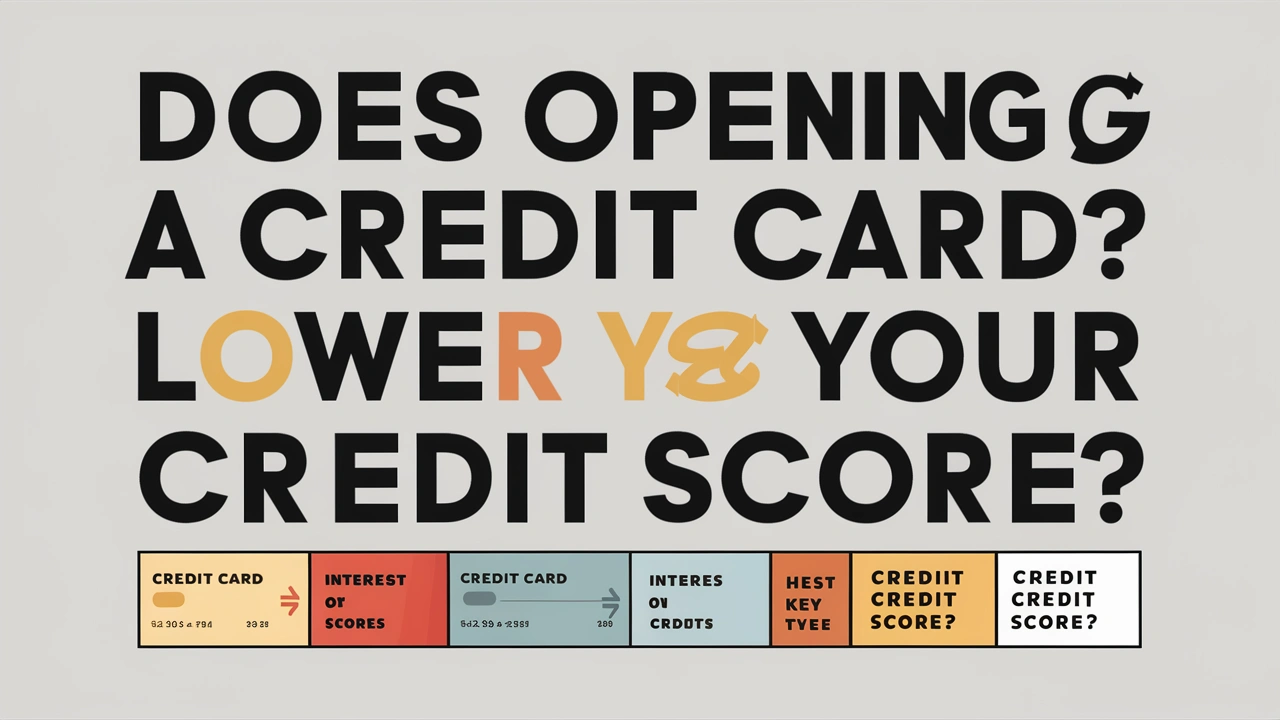-
Posted on: 23 Aug 2024

-
Whenever you try to get a credit such as a credit card, the provider pulls a credit report which in turn affects your credit score. But in the majority of cases, it remains minimal and short-term. Your score should recover within the next several months. However, it is necessary to know the consequences which arise when a new account is being created.
Credit Inquiries
When you apply for a credit card, you will be required to give some personal information that the card issuer will use to verify your credit rating. It appears in your credit reports in the form of a ‘hard inquiry’ by the three credit bureaus, namely Experian, Equifax, and TransUnion. A large number of inquiries in a short period is not good for any loan provider as it portrays higher risk hence it comes with a small blow on the scores. The good part is these inquiries only affect your score for one year and the impact decreases progressively. In this case, inquiries from shopping for new credit affect most people to a negligible extent.
Length of Credit History
The length of your credit history, including the average age of accounts, contributes to about 15% of your FICO score. Since a new credit card means a new credit account, it brings down the average credit account age. If you don’t have many other credit accounts or if your credit history is not very long it will affect your scores. However, the effect is not very significant for those who have other good credit facilities. It is also worth mentioning that as the new account gets older and if you cultivate a good standing with that particular card, it improves this factor.
Credit Utilization Ratio
The credit utilization ratio refers to the proportion of your current credit limits that you are using. It contributes approximately 30% to the total FICO score and is a variant that should ideally not exceed 30%. Whenever you get a credit card, your total credit line rises and as a result, your credit utilization ratio declines. This can help your score get off the ground. However, if you utilize the card to its limit within a short span, the ratio will increase, and you will be in a fix. The big idea here is to maintain low balances compared to credit limits on all your credit cards in the long run.
Advantages associated with credit cards.
A credit card application leads to a hard credit check and a reduction in credit history length but in the long run, credit health is very beneficial. By ensuring that you make the necessary payments every month and keeping the account active, you also show that you can handle credit appropriately and the account will not be new at all. This results in permanent score enhancement. Also, a higher total credit limit enables lower utilization and a higher credit score. Just getting cards from time to time is not wrong; those with high scores have the most credit card accounts opened in the long run.
Guidelines for Obtaining a Credit Card
If you want to open a credit card without hurting your score, here are some tips to follow:
-
Consider timing. Use sparingly, only when you truly require additional credit to prevent more inquiries on your report. Choose to have your applications spread out by several months.
-
Begin low if inexperienced in credit. Start with a regular credit card with a small credit limit as a way to establish a credit history in the first year.
-
Minimize the utilization at all times. Eliminate balances actively each month. Request credit line increments from time to time.
-
Do not shut down any accounts. Ideally, it is beneficial to have a blend of new credit along with old credit accounts, which is ideal for scoring algorithms.
- Review your credit report and score. Ensure that there are no mistakes or flaws before applying for a card. Make any application decisions based on actual data.
The Takeaway
Long-term, getting a new credit card is a beneficial action when done responsibly for improving credit health. Just remember that the temporary negative impact can result from increased inquiries and lower average account age right after the application. So long as you maintain small card limits and low balances, and retain accounts for the long term, your score trend will be positive.
Need better credit? Call (888) 803-7889 and let the experts help you!
-










